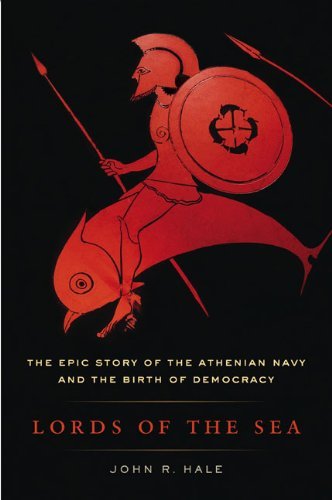What do you think?
Rate this book


395 pages, Hardcover
First published April 4, 2009
The beat of oars was the heartbeat of Athens in the city’s Golden Age.
A naval tradition that depended on the muscles and sweat of the masses led inevitably to democracy: from sea power to democratic power. (...) Oars were great levelers. Rowing demanded perfect unison of action, and the discipline inevitably generated a powerful unity of spirit. Rich and poor shared the same callused palms, blistered buttocks, and stiff muscles, as well as the same hopes and fears for the future. A new unified Athens was being forged on the decks and rowing thwarts of the fleet.
What made the Spartans, Athenians, and others willing to fight? Part of the answer lay in a raw Greek spirit of independence, a fierce and fanatical zeal for liberty. Their rough and rocky land had bred a race of tough, self-reliant people. Greek cities were as obstinate as individual citizens in jealously guarding their freedom. For centuries this spirit had kept the Greeks divided against one another. Now at last it helped them unite against a common enemy.
Only six years had passed since the victory at the Eurymedon River had seemingly put Cimon at the summit of Athens’ pantheon of heroes. His father, Miltiades, had suffered a similar fate within a year of his victory at Marathon. There was no question that the Athenians often dealt more harshly with their leaders than they did with their enemies. (...) One after another the heroes of Arginusae drank their vials of hemlock juice and departed this life.
As youths many had taken the traditional oath: “I shall hand on my fatherland not less, but greater.” More than any other generation, these men had fulfilled that promise. (...) All those gifts of mind and spirit that set Athenians apart shone at their brightest in Phormio: optimism, energy, inventiveness, and daring; a determination to seize every chance and defy all odds; and the iron will to continue the fight even when all seemed lost—even when the enemy had already begun to celebrate their victory. For Phormio, it was never too late to win.
When the historian Thucydides recorded the people’s energetic response, he observed that democracies are always at their best when things seem at their worst.
The inexplicable failure of the Spartans to attack Athens immediately after this battle led Thucydides to dub them “quite the most convenient enemies that the Athenians could possibly have had.”